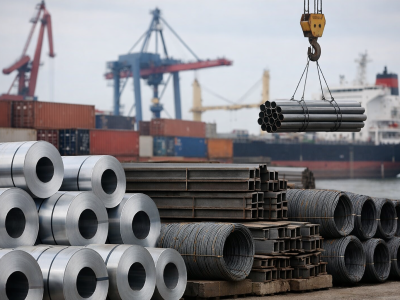
Shares of South Korea’s leading entertainment companies rallied after South Korea’s national broadcaster KBS signed a content exchange agreement with China Media Group (CMG), signaling a potential end to the unofficial ban that has long stifled South Korean entertainment in the Chinese market.
SM Entertainment rose more than 8%, JYP Entertainment gained over 9%, while YG Entertainment and Hybe each saw day-high increases of about 4% and 3%, respectively, before trimming gains later in the day.
The deal, announced Saturday, marks one of the first major cultural cooperation agreements between Seoul and Beijing in nearly a decade, raising hopes that South Korean music, television, and drama could regain access to China’s massive entertainment audience.
KBS described the partnership as a milestone for bilateral media exchange, saying it will extend beyond news and sports to cultural programs.
Among the initiatives discussed was the planned Chinese launch of “Music Bank World Tour,” the broadcaster’s popular K-pop showcase.
“I think it’s meaningful that we’ve created a breakthrough that will allow the entire Korean content industry to once again make a full-fledged foray into the Chinese market,” KBS President Park Jang-beom said.
The partnership follows a meeting between South Korean President Lee Jae Myung and Chinese President Xi Jinping at the Asia-Pacific Economic Cooperation (APEC) summit.
Lee wrote on Facebook that the summit was “very significant in the fact that it has fully restored the Korea-China relations.”
Undoing the effects of the 2016 “soft ban”
China imposed an informal ban on South Korean entertainment in 2016, following Seoul’s deployment of the US Terminal High Altitude Area Defense (THAAD) missile system.
Since then, K-pop artists have largely been excluded from performing on mainland Chinese stages, with most concerts taking place in Hong Kong or Macau.
While a few South Korean acts have made small-scale appearances in China, large concerts and televised broadcasts have been absent.
In May, boy band EPEX was set to hold the first full concert by a Korean group in mainland China since 2016, but the event was postponed due to “local circumstances.”
The new agreement raises expectations that such performances could soon resume.
KBS said it plans to strengthen ties with CMG during next year’s APEC Summit in Shenzhen and revive joint cultural events, including the once-popular “Korea-China Song Festival,” which ran from 1999 to 2016.
Chinese audiences still embrace Hallyu
Despite the restrictions, demand for Korean content in China has remained strong.
A July report by the Korea Creative Content Agency showed that China, Hong Kong, and Taiwan together accounted for 26.1% of South Korea’s total music exports in 2023, worth about $319 million.
A separate government survey found China’s favorability toward South Korea stood at 73.5%, above the global average, and noted that Chinese consumers’ interest in Korean culture continues to grow.
As Beijing signals its intent to attract foreign investment and ease cultural restrictions, industry observers believe the revival of K-pop in China may soon move from possibility to reality—marking a new chapter in the global expansion of Hallyu, the Korean Wave.
The post Is K-Pop ban over? South Korea-China media deal sparks hopes for a return appeared first on Invezz










